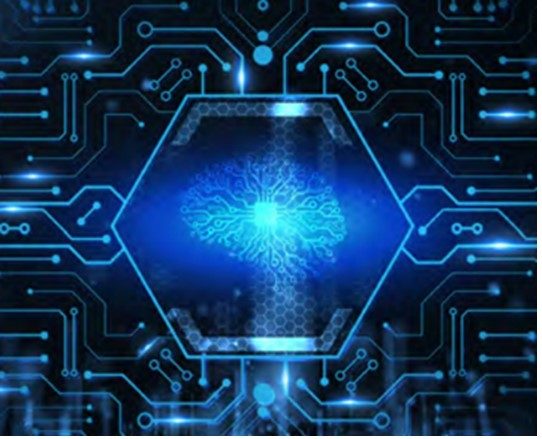Topic Close-up #1
Symposium: Z05—Materials, Devices, and Systems for Neuromorphic Computing and Artificial Intelligence Hardware
Deadline for submitting abstracts:
December 1, 2023
Submit today!
Symposium focus: This is the first symposium that describes how to mimic biological neural systems and demonstrate brain-like energy efficiency in silicon-based computing systems. Invited speakers from around the world discuss evolving topics on novel materials processing, devices, circuits, and systems. This symposium addresses the materials and devices required for the hardware requirements using nanoscale solid state and electrochemical materials that enable neuromorphic computing and next-generation AI technologies. This includes in-memory computing and implementation of deep neural network circuits. In some instances, materials and device co-design, and device and circuit co-design, are required through extensive simulation and processing for system implementation. Issues like energy efficiency and performance enhancement are required to emulate the brain’s connectivity in hardware. The switching devices that replicate the electronic synapse need to reduce the device-to-device or in-device stochasticity. Also required is understanding how these materials/devices (mechanisms) work for the neuromorphic systems and applications.
Confirmed invited speakers
Prof. Saptarshi Das, The Pennsylvania State University, US
Prof. Alexander Shluger, University College London, UK
Dr. Alec Talin, Sandia National Laboratory, US
Dr. Ilia Valov, Forschungszentrum Jülich, Germany
Prof. Sarbajit Banerjee, Texas A&M University, US
Prof. Hermann Kohlstedt, Universität zu Kiel, Germany
Prof. Joshua Yang, University of Southern California, US
Prof. Shaahin Angizi, New Jersey Institute of Technology, US
Presentations on the following topics are solicited:
- Neuromorphic computing and AI hardware related materials and devices; computing and AI hardware related materials and devices: New devices, metals, and different switching layer materials are being considered for AI and neuromorphic computing, i.e., Resistive RAM; ferroelectric RAM, STT-MRAM, and phase-change memory (PCM) are taking the lead to reduce power requirements; materials optimization and development for neuromorphic purposes, such as CMOS-compatible ferroelectrics, multiferroics, etc.
- Materials and device codesign for AI: DFT and other simulation approaches to build devices with optimal performance with energy efficiency; this can involve transition metal oxides, and different layered materials.
- Device and circuit codesign: Fabrication of different resistive switching devices, circuits, and arrays for different applications; device optimization for circuit design requirements.
- Impact of variability: Analyzing the impact of variability on the performance of crossbar arrays of resistive switching devices for different applications; account for thermal effects on the performance (thermal management); optimization of switching layer.
Fundamental and applied studies on materials, devices, and systems are welcome.
Young scientists
The symposium invites young researchers to present papers related to neuromorphic computing and AI Systems, devices, and materials. Of interest are new materials and designs, theoretical and experimental aspects of inorganic and organic dielectric materials, growth processes, bulk and inter-facial properties, metal-dielectric interface, electric and ionic transport, porous dielectrics, and thin and ultra-thin films.
ECS Transactions, an enhanced issue of the conference proceedings, is planned to be available at the meeting. All authors accepted for presentation are requested to submit their full text manuscript for the issue no later than March 15, 2024. All manuscripts should be submitted online and must be in either MS Word or PDF format.
Symposium organizers
Prof. Durga Misra, New Jersey Institute of Technology, US
Prof. Kuniyuki Kakushima, Tokyo Institute of Technology, Japan
Prof. Revathy Padmanabhan, Indian Institute of Technology Palakkad, India
Prof. Vidhya Chakrapani, Rensselaer Polytechnic Institute, US
Prof. Jeff Blackburn, National Renewable Energy Laboratory, US
Prof. Gitanjali Kolhatkar, McMaster University, Canada
Prof. Bilge Yildiz, Massachusetts Institute of Technology, US
For more information, please consult the Call for Papers.


